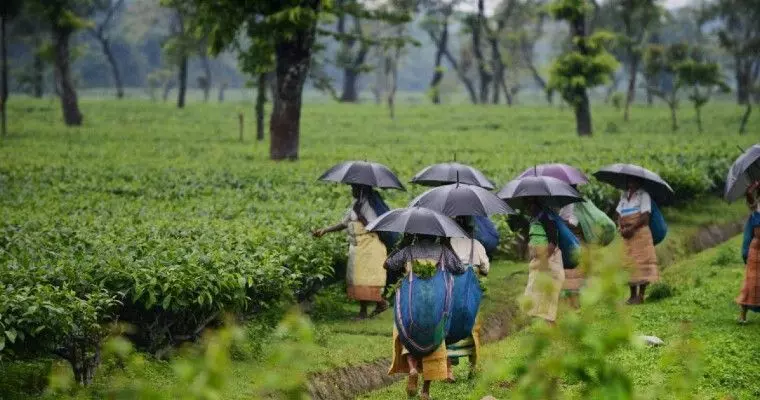Delay in monsoon onset over Kerala, expected by 4 June
Southwest monsoon normally sets in over Kerala on 1 June with a standard deviation of about seven days
By Newsmeter Network
New Delhi: There will be a slight delay in the onset of southwest monsoon over Kerala, and it is likely to arrive by 4 June, the India Meteorological Department (IMD) said on Tuesday.
Southwest monsoon normally sets in over Kerala on 1 June with a standard deviation of about seven days. This year, the onset of monsoon over Kerala is likely to be on 4 June, with a model error of four days.
Last year, the monsoon arrived in the southern state on 29 May, in 2021 it was 3 June, and in 2020 it was 1 June.
The monsoon onset over Kerala serves as a significant indicator for the advancement of the southwest monsoon across the Indian mainland, bringing relief from scorching summer temperatures to various regions.
IMD has been providing operational forecasts for the date of monsoon onset over Kerala since 2005, utilising a state-of-the-art statistical model. The model incorporates six predictors, including minimum temperatures over northwest India, pre-monsoon rainfall peak over the south peninsula, outgoing longwave radiation over the South China Sea, lower tropospheric zonal wind over the southeast Indian Ocean, mean sea level pressure over the subtropical NW Pacific Ocean, and upper tropospheric zonal wind over the northeast Indian Ocean.
The model demonstrated accuracy in its predictions over the past 18 years, except for 2015.
To validate the forecast accuracy, IMD provided the verification results for the monsoon onset dates over Kerala for the past five years (2018-2022). The actual onset dates for these years were as follows:
2018: 29 May
2019: 1 June
2020: 3 June
2021: 1 June
2022: 29 May
The IMD had last month said India is expected to get normal rainfall during the southwest monsoon season despite the evolving El Nino conditions.
Rainfed agriculture is a critical component of India’s agricultural landscape, with 52% of the net cultivated area relying on this method. It accounts for about 40% of the country’s total food production, making it a crucial contributor to India’s food security and economic stability.
Inputs from PTI